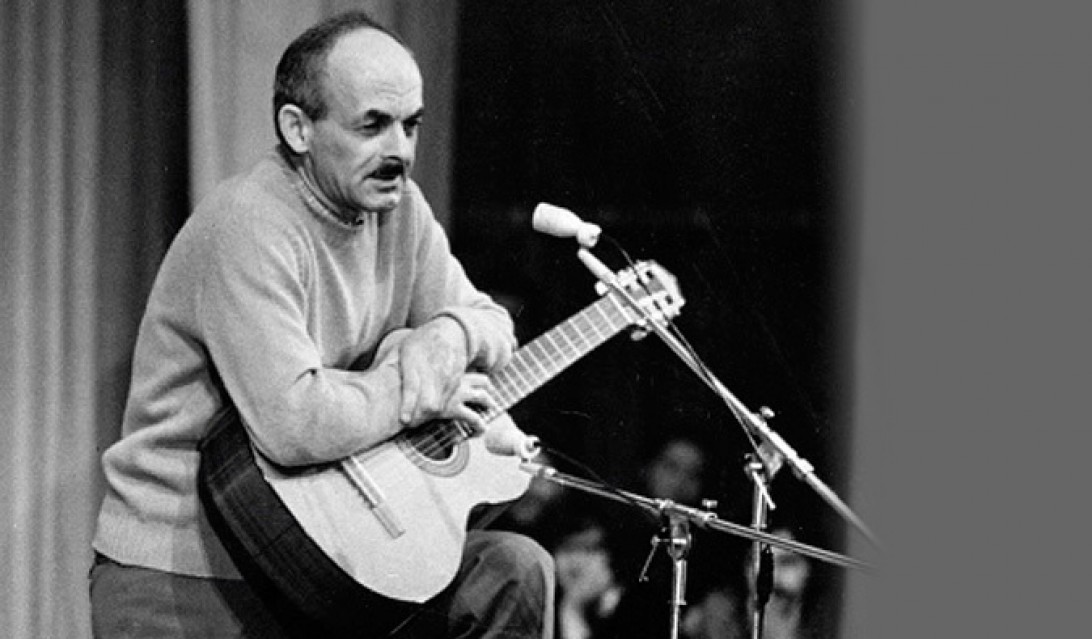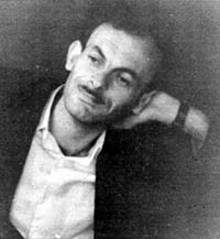
Bulat Shalvovich Okudzhava (May 9, 1924 – June 12, 1997) was one of the pioneers of the Russian “author song” (авторская песня), or guitar poetry, a genre that developed in opposition to official Soviet culture in the 1950s and 60s. Author songs are poems written and set to simple guitar music by the composer, or “bard” (бард). Okudzhava’s songs in particular are characterized by an untrained voice and amateur guitar technique combined with moving lyrics that deal with themes of loneliness, nostalgia and war. Songs like “Song about the Arbat” (Песенка об Арбате) and “The Last Trolleybus” (Последний троллейбус) depict intimate scenes of solitary wandering through the streets of Moscow, in particular the old Arbat district, which through Okudzhava’s music became a symbol of the resurgent intelligentsia. Other songs, like “The Prayer of Francois Villon” (Молитва Франсуа Вийона), use Aesopian language to make oblique references to the Stalinist era. Okudzhava’s songs provided the Soviet intelligentsia of the sixties and seventies with a new poetic language for expressing the joys and sorrows of private life outside the sphere of official culture.
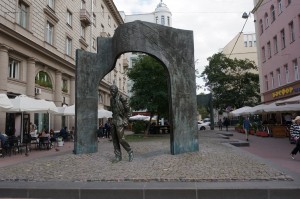
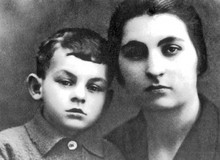
Okudzhava, the son of a Georgian father and an Armenian mother, was born in Moscow in 1924. Both of his parents were arrested on political charges during the Great Purge in 1937; his father, a high government official, was shot as a spy, while his mother spent the next eighteen years in the gulag. In 1939 Okudzhava returned to Tbilisi to live with relatives, and in 1941, at the age of seventeen, he volunteered for the Red Army infantry. Okudzhava fought through the entire war against Germany and was wounded several times. Many of his songs and literary works refer to his wartime experiences, including his first major prose work, the semi-autobiographical novella Good luck, Schoolboy! (Будь здоров, школяр!), published in 1961. The songs “The Paper Soldier” (Бумажный солдат) and “A Song about Soldiers’ Boots” (Песенка о солдатских сапогах) convey the tragedy of war in a way that ran counter to the romantic propaganda of the Soviet Union.
After the war Okudzhava returned to Georgia. He graduated from the university of Tbilisi in 1950 and then spent four years as a village schoolmaster near Kaluga in central Russia. The rehabilitation of his parents in 1955 allowed Okudzhava to move to Moscow, and in the late 50s he began to experiment with guitar poetry. In the 60s his songs began to gain popularity on a large scale through the medium of magnitizdat (магнитиздат), or “tape recorder publishing,” an unofficial means of recording and disseminating music. He found an enthusiastic audience among the Soviet intelligentsia, both in the USSR and abroad. Okudzhava gained notoriety as a member of the great artistic generation of the 1960s, which included such figures as Vasily Aksenov, Evgeny Evtushenko, Andrei Voznesensky, and Bella Akhmadulina.
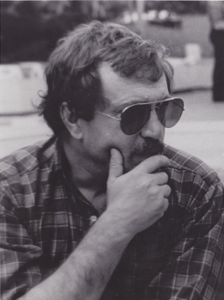
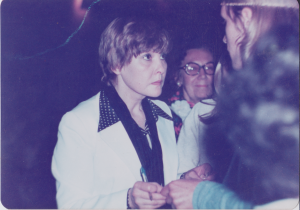
Okudzhava produced his first record on a visit to Paris in 1968, and soon gained popularity in both Western Europe and the United States. By the mid-70s recordings of Okudzhava’s performances began to be released on official records within the Soviet Union. Throughout the 80s he produced a great deal of poetry and prose, and in 1991 he was awarded the USSR State Prize for his literary achievements. He died in Paris on June 12, 1997, and is buried in Vagankovo Cemetery in Moscow.

Sources for Further Information:
Bykov, Dmitri. Bulat Okudzhava. “Zhizn zamechatelnykh ludei.” Moskva: Molodaya Gvardia, 2011.
Platonov, Rachel S. Singing the Self: Guitar Poetry, Community, and Identity in the Post-Stalin Period. Evanston: Northwestern UP, 2012. Print.
Smith, Gerald Stanton. Songs to Seven Strings: Russian Guitar Poetry and Soviet “Mass Song.” Bloomington, IN: Indiana University Press, 1984.
Sokolova, I.A. (ed.). Okudzhava: Problemy poetyki i tekstologii. Moskva: Gosudarstvenny Kul’turny Tsentr-muzei Vysotskogo, 2002.
Zholkovsky, Alexander. “Paradise Disguised as a Courtyard: Notes on the Poetic World of Bulat Okudzhava.” Izbrannye stat’i o russkoi poezii: invariant, struktury, strategii, interteksty. Moskva: Izdatel’skii tsentr RGGU, 2005.
